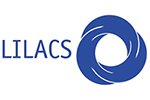ISSN Online: 2177-1235 | ISSN Print: 1983-5175
Showing of 1 until 2 from 2 result(s)
Search for : Nikole guimarães Soares
Body Dysmorphic Disorder and the influence of the media in demand for plastic surgery: the importance of proper evaluation
ABSTRACT
Introduction: Since the beginning, plastic surgery has improved self-esteem and acceptance in a society that idealizes the cult of the body. The pressure of consumption and the ease of undergoing plastic surgery becomes an obsession in these patients' lives.
Method: Female patients who underwent psychological evaluation and follow-up throughout the surgical and plastic surgery procedure, aged between 19 and 57, answered the Sociocultural Attitudes Questionnaire concerning appearance and the Body Dysmorphophobia Symptom Scale.
Results: Of the 38 patients evaluated, 17 have the media as an influence concerning their body image and have symptoms of Body Dysmorphic Disorder (BDD), 13 patients have the media as an influence on their body image, but they do not have BDD symptoms, and in eight patients the media does not influence their body image, and they do not have BDD symptoms.
Conclusion: The importance of a multidisciplinary team, with a psychologist, is highlighted to evaluate and monitor the patient throughout the surgical process, as the early diagnosis of BDD will avoid dissatisfaction with the result of the plastic surgery and, mainly, future court lawsuits.
Keywords: Body dysmorphic disorders; Reconstructive surgical procedures; Mass media; Health's judicialization; Obsessive-compulsive disorder
RESUMO
Introdução: Desde os primórdios, a cirurgia plástica melhora a autoestima e a aceitação em uma sociedade que idealiza o culto ao corpo. A pressão do consumo e a facilidade de se submeter a um procedimento de cirurgia plástica acabam tornando-se obsessão na vida desses pacientes.
Método: Pacientes do sexo feminino que passaram por avaliação e acompanhamento psicológico em todo o processo cirúrgico, e procedimento de cirurgia plástica, com a idade entre 19 e 57 anos, responderam ao questionário de Atitudes Socioculturais em relação a aparência e a Escala de Sintomas de Dismorfobia Corporal - Body Dysmorphic Scale.
Resultados: Dos 38 pacientes avaliados, 17 têm a mídia como influência em relação a sua imagem corporal e apresentam sintomas do Transtorno Dismórfico Corporal (TDC), 13 pacientes têm a mídia como influência em relação a sua imagem corporal, mas não apresentam sintomas do TDC, e em oito pacientes a mídia não influencia em relação a sua imagem corporal e não apresentam sintomas do TDC.
Conclusão: Destaca-se a importância de uma equipe multidisciplinar, com a presença de um psicólogo, para avaliar e acompanhar o paciente em todo processo cirúrgico, pois o diagnóstico precoce do TDC evitará uma insatisfação com o resultado da cirurgia plástica e, principalmente, futuros processos judiciais.
Palavras-chave: Transtornos dismórficos corporais; Procedimentos cirúrgicos reconstrutivos; Meios de comunicação de massa; Judicialização da saúde; Transtorno obsessivo-compulsivo
The influence of social media on the decision to undergo plastic surgery
ABSTRACT
Introduction: Over the years and with the proportional growth of social media, focused mainly on the cult of the body and perfection, the demand for plastic surgeries has increased overwhelmingly, awakening an endless desire for body change, most of the time with "unrealistic" promises" from some professionals.
Method: Research consisting of 62 female and male patients, aged between 22 and 61 years, residing in the state of São Paulo, who have already undergone a plastic surgery procedure and/or will undergo plastic surgery and cosmiatry procedures, who responded to the questionnaire "The influence of social media on plastic surgery".
Results: The results demonstrate that the media plays an important role in choosing a plastic surgeon, especially when the success of plastic surgery and cosmetic surgery procedures is demonstrated through before and after photos.
Conclusion: Plastic surgery is a medical specialty that plays a fundamental role in the aesthetic and psychological transformation of many individuals, however, it is important to highlight the need for an ethical approach, to guarantee patients' well-being and excellence in medical practice.
Keywords: Social media; Plastic surgery procedures; Motivation; Ethics; Health's judicialization
RESUMO
Introdução: Com o passar dos anos e o proporcional crescimento das mídia sociais, focado principalmente no culto ao corpo e à perfeição, a procura por cirurgias plásticas vem aumentando de forma avassaladora, despertando um interminável desejo pela mudança corporal, na maioria das vezes com promessas "irreais" de alguns profissionais.
Método: Pesquisa composta por 62 pacientes dos sexos feminino e masculino, com idade entre 22 e 61 anos, residentes no estado de São Paulo, que já se submeteram a um procedimento de cirurgia plástica e/ou ainda passarão por procedimentos de cirurgia plástica e cosmiatria, que responderam ao questionário "A influência das mídias sociais na cirurgia plástica".
Resultados: Os resultados demonstram que a mídia exerce um importante papel na escolha do cirurgião plástico, principalmente quando o sucesso dos procedimentos de cirurgia plástica e cosmiatria é demonstrado através de fotos de antes e depois.
Conclusão: A cirurgia plástica é uma especialidade médica que desempenha um papel fundamental na transformação estética e psicológica de muitos indivíduos, no entanto, é importante ressaltar a necessidade de uma abordagem ética, com o objetivo de garantir o bem-estar dos pacientes e a excelência na prática médica.
Palavras-chave: Mídias sociais; Procedimentos de cirurgia plástica; Motivação; Ética; Judicialização da saúde
 All scientific articles published at www.rbcp.org.br are licensed under a Creative Commons license
All scientific articles published at www.rbcp.org.br are licensed under a Creative Commons license






